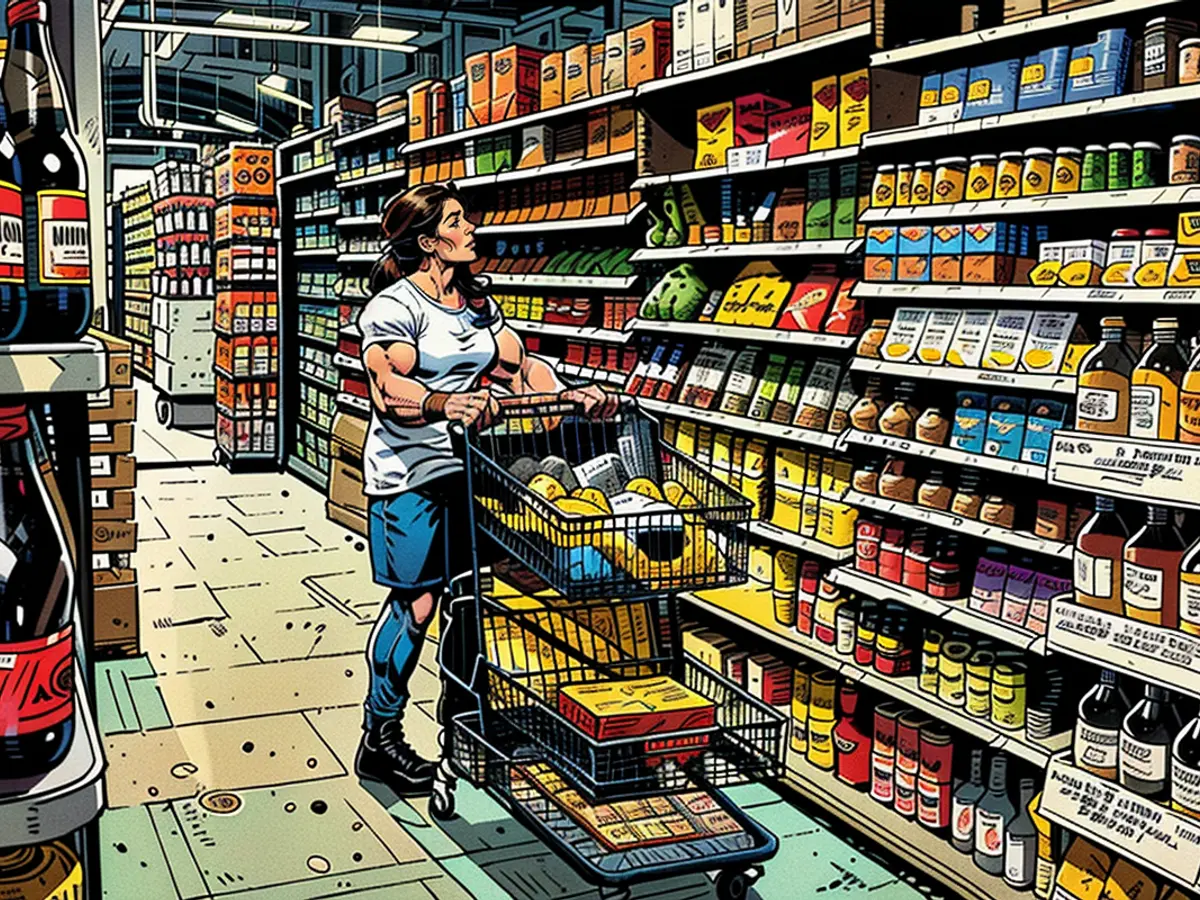Cheapflation
Facing high inflation, more consumers are turning to affordable brands of discounters and supermarkets. Their prices, however, have nearly doubled in rate compared to those of expensive branded products.
Inflation does not affect all consumers equally. Lower-income households have been disproportionately impacted by rising prices in recent years, as non-perishable food items, which make up a larger share of their expenses than for wealthier households, have been among the main drivers of inflation. A new study by two economists from Harvard University and the Bank of Canada reveals an additional mechanism that contributes to the fact that income-weak consumers suffer more from inflation and this is not apparent from official price data: "Cheapflation" is the term used by economists Alberto Cavallo and Oleksiy Kryvtsov to describe the phenomenon that affordable variants of the same food item have significantly outpaced the price increases of branded products in the past few years.
The researchers analyzed over two million price data from the "Billion Prices Project" of more than 90 retail chains in 19 countries. The main finding: Between January 2020 and May 2024, the prices of affordable food brands rose significantly faster than those of branded products. This effect was particularly strong in Germany. While food prices overall increased by 22% in these four years, the prices of branded products only rose by 15%, but affordable food brands increased by 29%, almost double the rate.
In the context of historically high inflation in recent years, the so-called trademark brands of retailers have experienced a boom. Consumers, in response to rising prices for many staple foods such as dairy products, flour, sugar, or oil, have increasingly replaced branded products with affordable alternatives. Retailers have reinforced this trend in some cases through public disputes with brand manufacturers. In some cases, supermarkets even removed popular branded products from their assortment because they refused to pass on price increases demanded by the manufacturers to their customers.
No "Buffer" for Affordable Brands
At the same time, retail conglomerates have reduced the price gap between branded products and their own "budget brands." According to Cavallo and Kryvtsov, this reduces the ability of consumers to reduce their inflation burden by switching to cheaper product variants. Moreover, the study shows that consumers who already shop price-consciously and avoid expensive branded products are even more affected by inflation than previously indicated by official statistics. These consumers do not differentiate between price segments within product categories in their consumer price data.
The economists cite several possible reasons for the disproportionate price increases of affordable products. On the one hand, this could be a reaction of retailers to increased demand for these private labels. On the other hand, the production costs of such products may have risen more than those of branded products. Energy and raw material prices often make up a larger share of the total costs for affordable retail brands. Additionally, the profit margin for retailers is usually lower for these budget brands than for branded products. Retailers therefore have less "buffer" in their prices and must pass on rising costs more quickly to their customers.
The study by Cavallo and Kryvtsov also highlights that retail conglomerates have narrowed the price gap between branded and discounter products, making it harder for income-weak consumers to mitigate inflation's impact through price switches. Furthermore, the economy's current high inflation has led retailers to significantly increase the prices of affordable food brands at a rate nearly twice as fast as branded products.








